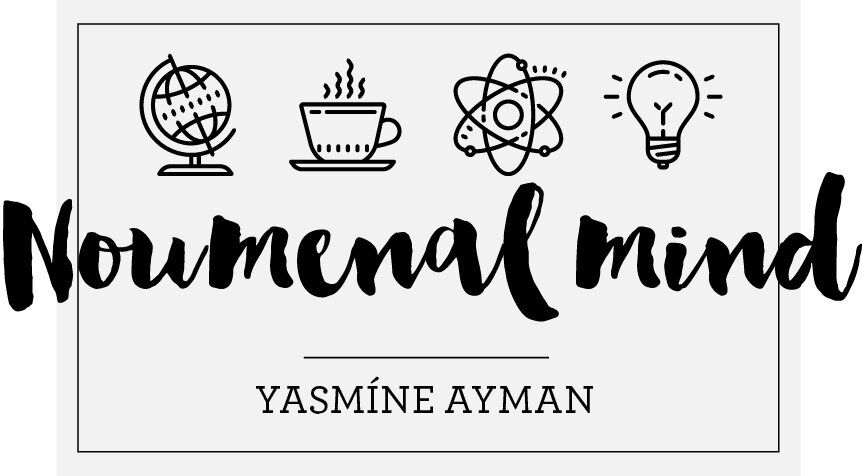What Can We Doubt? A Cartesian Approach
(From an essay I wrote in November 2015)
As Descartes famously said, certainty is “being unable to doubt“. Understanding the nature of our reality has been always of existential importance to us. At the core of examining our reality lies the question of what we can know of certainty; and conversely, what we can doubt. It is the very question that has plagued collective human consciousness since the dawn of “man”, and has been the most challenging object of philosophers’ quest to understand and explain reality with exacting certainty. Plato, during the classical period, and Descartes, during the early modern period of philosophy, are among the leading thinkers who attempted to address this issue.
Plato interpreted the certainty criterion metaphysically where objects are unchanging. Descartes emphasised epistemology of thinking rather than metaphysics. According to Descartes, real certainty is when the knower is unable to doubt what they know. Descartes intends to reach certainty by his famous “Method of Doubt” which is a way of finding real knowledge – the knowledge that cannot be doubted. Through this method, logic is used extensively - one subjects each belief to doubt. If it is possible to doubt a belief, under any scenario, it must be discarded as foundation of truth. This process must be repeated until one ends with a core list of truths that cannot be doubted. These truths then form a secure foundation to subsequently construct the knowledge that cannot be doubted until we conclude on the realities of the world surrounding us. This method will guarantee that whatever can not be subject to doubt is really certain and can be used in a valid argument (like in a syllogism). Like Aristotle, Descartes believed that the theory of a syllogism is a good way to build knowledge: True premises in a valid argument yield true conclusions.
Humans possess 2 types of faculties to examine reality: (i) senses and (ii) rational thought. Five senses (or “outer powers”) exist in man and act as the “Agents of Perception”- through these five powers man perceives the physical world. These include sight, which perceives visible forms; hearing, which perceives audible sounds; taste, which perceives foods; smell, which perceives odors and touch, which perceives tangible objects. Many consider this method of acquiring knowledge to be supreme. The senses, however, are imperfect and frequently lead us to error. For example, the sight sees the mirage and mistakes desert for water, and it sees images reflected in mirrors as real and existent; straight objects look bent in water; the sun looks small from our positions on earth. Our sight believes the earth to be stationary and the sun to be in motion. Thus, our sense of sight is fallible.
In this image, for example, many would consider the first line to be longer than the second line, while in reality, both lines are of the same length. The arrow-tips of the end present the illusion that these lines are of differing length. As Descartes says “The senses deceive from time to time, and it is prudent never to trust wholly those who have deceived us even once.” This is his parting rebuttal to empiricists’ claim to knowledge. The information attained from the senses can therefore not serve as a foundation for our knowledge.
Nevertheless, shouldn’t we generally trust our senses? If I am standing here looking at a laptop, surely this laptop exists. According to Descartes, we actually can doubt that the laptop is really in front of us. For instance, in a dream you see laptops to be as real as when you are awake. So how does one rule out that what you are seeing right now isn’t the product of your dreams? Descartes would suggest that we cannot rule it out (at least not on the basis of sensory experience), since in your dream there is no laptop, and just your experience of a laptop is present. Descartes further describes the potential existence of an ‘’Evil Genius” who has the powers of God but is not supremely good. This Evil Genius is determined to deceive us into thinking that there is a physical world when there isn’t one. Although Descartes may not truly believe this, his point suggests that one cannot simply rule it out based on the senses.
The ‘Allegory of The Cave’ is a theory introduced by Plato, which is directly linked to the role our senses play in the perception of knowledge. Plato acknowledged that the information we have obtained through our senses are no more than opinions and that, in order to have real knowledge (to reach the level of certainty that was discussed earlier), we must gain it through philosophical reasoning or “rational thought”. In brief, the ‘Allegory of the Cave’ distinguished between people who mistake knowledge gained from the senses for the truth and the people who really do recognise the truth (shadows are recognised as reality if the objects have never been seen before).
The epitome of our discourse so far is to understand that knowledge acquired from the senses is imperfect. Thus, our only other faculty to examine reality is our rational thought, or our inner powers of thinking, imagination, and creativity.
One of the early examples, using the method of rational thinking was Plato’s discussion on “Forms”: Ideal templates that exist somewhere in an unknown dimension. These forms are the ultimate reference points for all objects we observe in the physical world. They are more real than the physical objects you see in the world. The World of forms is the idea of the a priori in your mind before you are even born, before you look at the world and gather information. For example, a given chair or another chair are all imperfect manifestations of the perfect chair which we knew perhaps even before we were born, which how we can know and identify the objects in this world, while the true reality is the Form of the chair in this example.
In contrast to Plato, the English empiricist Locke believed that man is born with a “tabula rasa” – a white paper, void of all character, and all knowledge is learnt from the 5 senses (although he did recognise an innate power of reflection). This view is that everything is learnt a posteriori, and that a priori concepts are far more limited than what Plato had suggested. However, as we discussed earlier, senses, and experiments that rely on senses, can be doubted.
If all that is a posteriori, learnt through our senses, can be doubted, what rational method can be used to examine reality? Kant’s answer was mathematics, a knowledge that is known a priori - experiments to confirm that 7+5=12 are unnecessary. Kant posited that we could ultimately justify this truth without appealing to our senses at all. Kant also claimed that a priori knowledge has special characteristics: we don’t think 7+5=12 just contingently appears to be 12, we don’t think it is possible for this to equal anything else but 12, therefore, it necessarily equals 12. Kant thinks this applies to all a priori knowledge, which are also universal and true without exception. There is no time or place where 7+5 equals something other than 12. Therefore mathematics is a universal truth that can not be doubted.
Descartes, however, imagined a scenario in which 7+5 does not equal 12. He refers to a common experience of making simple mistakes in mathematics. However convinced we may be of our answer we can always be mistaken. How is it that we keep making the same mistake and do not notice it? Could it be the case that 7+5=13? It doesn’t matter what the value is, the point is that it could not be 12 and that as we are doing our simply arithmetic the Evil Genius is tricking us into thinking that 7+5=12. It may be the case that we feel certain about our answer (12) yet in reality some other claim is in fact true (maybe 7+5=13). Every time we do arithmetic there are various steps and between each step there is room for the Evil Genius to deceive us at the crucial step to cause error without noticing it, and as such we cannot use mathematics as the foundation on which we intend to build all our knowledge.
However, even as we are doubting these verities, one observation can not be doubted: Even if there were an Evil Genius, and even if it were deceiving me into thinking that there was a physical world when there in fact wasn’t one, it couldn’t be the case that I think there is a physical world if there weren’t a ‘me’ to be deceived. In order to be deceived, there must be the rational thought of having conceived this notion and somebody who is being deceived. This, according to Descartes, served a foundation on which he planned to build all the things he had previously doubted. He claimed that this truth was “clear” (meaning it is manifest to an attentive mind) and “distinct” (meaning it only contains things which are themselves clear). The “cogito ergo sum” is self evident so therefore matches this criteria. ‘Thinking” includes any mental activity so even pain counts as thinking (as proved by the ‘phantom limb pain’).
In another illustration, one can consider the wax, which has properties such as a smell and it’s specific shape, but this doesn’t contribute to what we truly know about the wax. If you take this wax and hold it next to fire all of these physical properties change; it no longer obtains the same shape, smell, size, taste, or feel. Everyone of its physical properties change, but we know that it is the same wax throughout the process. We know this through rational intuition; we perceive the real nature of the wax solely with our minds and the mind is a non-physical, distinct entity whose essential characteristic is thinking or rational thought.
Another proof of the existence of rational thought is Logic: if a is bigger than b and b is bigger than c then a must be bigger than c, even if a was never set against c.
From the 2 sets of faculties in our possession, namely, (i) our senses and (ii) our rational thought, we have clearly demonstrated that experiments and knowledge gained through senses can be doubted. In fact, the evolution of science is replete with examples of theories held to be true for centuries based on experiments through senses (e.g. earth is flat, sun revolves around the earth, and even the ever evolving theories about subatomic particles of few years ago), all of which have been since invalidated. Similarly, as shown above, rational thought has generated other theories about nature of reality that has also been discredited.
What we can not doubt is the existence of rational thought itself – the fact that thinking has occurred or is occurring, and the existence of “me” who is generating this rational thought, and finally, by extension, the reality of the creative force that eventually led to my existence, otherwise “I” would not have existed, and without me, there wouldn’t have been rational thought. All else can be doubted to varying degrees; all else can be deemed certain to varying degrees.



